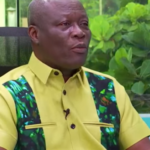In a powerful demonstration of commitment to country ownership of immunisation, new data released today shows that lower-income countries supported by Gavi, the Vaccine Alliance collectively contributed nearly US$255 million towards their own vaccination programmes in 2024 — a 19% increase from 2023. Furthermore, 84% of this funding came from domestic sources, up from 79% in 2023 – underscoring the increasing prioritisation of immunisation in national budgets, as well as countries’ commitments to build self-sustaining immunisation systems that no longer require Gavi support.
Despite political and economic pressures, 100% of countries met their 2024 co-financing obligations, excluding those granted waivers due to humanitarian crises. This includes countries facing significant challenges – Central African Republic, Chad, Haiti and Mali – that continued to prioritise investing immunisation. Going forward, total co-financing by Gavi-supported countries is projected to rise 22% to over US$300 million in 2025. During Gavi’s next strategic period, 2026 to 2030, low- and middle-income countries are expected to contribute US$ 4 billion –nearly half – of the costs of vaccination programmes introduced with Gavi support, including US$2 billion for vaccines that will be fully funded by middle-income countries.
This new data was released during a World Health Assembly side event titled “Investing in ownership: Sustaining immunisation for future generations”, co-hosted by Gavi and the Government of Côte d’Ivoire, attended by Ministers of Health and high-level representatives from 16 Gavi-supported countries*. Côte d’Ivoire has been a vocal champion for sustainable immunisation financing on the African continent. In reaction, Pierre Dimba, Minister of Health, Public Hygiene and Universal Health Coverage, Côte d’Ivoire said: “When it comes to vaccination, Gavi’s model is unique in that it helps countries like ours move toward greater autonomy, even as its support gradually phases out. We are committed to supporting other countries that are on a similar path.”
At the core of Gavi’s collaboration with supported countries is a co-financing policy that encourages them to invest in their own vaccine programmes by financing some of the required doses. This contribution, which increases as countries’ economies grow, helps governments expand vaccine budgets by building on existing allocations over time, slowly decreasing reliance on Gavi support. The end goal is sustainable self-financing of immunisation programmes. To-date, 19 countries have transitioned out of Gavi support with some, like India and Indonesia, even becoming donors.
“As a former Gavi-implementing country, Indonesia has witnessed firsthand the transformative impact of Gavi’s country-centric approach to building sustainable health systems. Today’s commitment by countries towards one day financing their own immunisation is testament to sustainably supporting vaccines delivery, not just in terms of health but also economic growth and development. Indonesia is now a Gavi donor and we, in turn, are committed to supporting its continued success, which helps keep Indonesians safe at a time when infectious diseases are on the rise,” said Budi Gunadi Sadikin, Minister of Health, Indonesia.
While domestic contributions are essential for long-term sustainability, Gavi remains responsive to country-specific challenges in an increasingly complex landscape – and the need to be flexible in its support. As a result, six countries received co-financing waivers in 2024 due to humanitarian emergencies. These waivers accounted for just 3.3% of total co-financing in 2024 – down from 3.8% in 2023 – highlighting the resilience of most countries in maintaining their commitments.
“The emphasis Gavi’s model places on sustainability and country ownership is truly unparalleled,” said Dr Sania Nishtar, CEO of Gavi, the Vaccine Alliance. “This is underscored by the record amounts lower-income countries are contributing, from domestic resources, towards their own immunisation programmes, as well as their commitment to follow in the footsteps of those countries that have graduated from Gavi support. In an interconnected world, vaccination anywhere is an investment in protecting people everywhere – and we thank both Gavi-supported countries and Gavi’s donors for their contributions to our collective health and security.”
Gavi is currently seeking to raise at least US$ 9 billion from donors to support its most ambitious strategy ever: aiming to protect more people against more diseases faster than ever before. During that period from 2026 to 2030, Gavi will also make its largest investments in protecting the world against the threat of infectious diseases – through global vaccine stockpiles, pandemic-ready instruments and preventing and responding to outbreaks.
Source: Publicagenda.news














